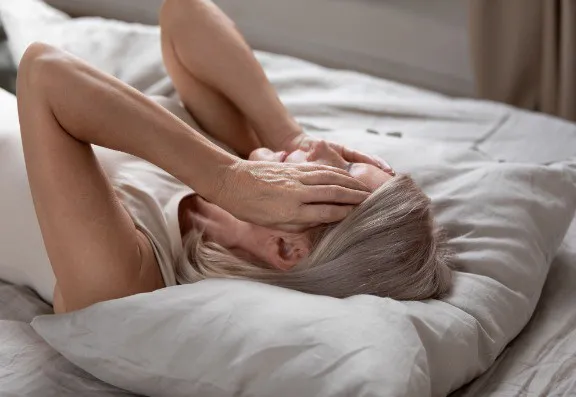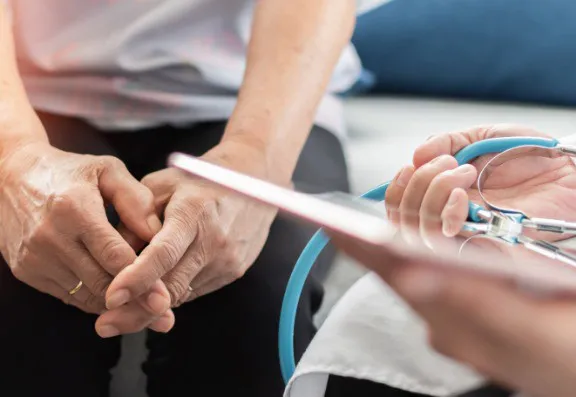Every woman will go through menopause in her life. This is usually between the ages of 45-55, but in rare cases can start earlier or later.
Menopause is defined as when a woman has not had any periods for 12 months in a row. The time leading up to this point – where the woman’s menstrual cycle may have fluctuated – is known as perimenopause.
Periods stop because the ovaries stop producing as much of the oestrogen hormone as they once did, so they no longer release an egg each month.
Menopause can also start if a woman undergoes surgery such as a hysterectomy (removal of the womb) or an oophorectomy (removal of the ovaries). Certain cancer treatments such as chemotherapy or radiation therapy may also trigger menopause.

There are many symptoms associated with menopause that can have both a physical and mental impact on women. These include:
All women experience menopause differently. For some, menopausal symptoms won’t cause too much bother, but others can be greatly impacted by a range of challenges.
The intensity and duration of symptoms can also vary from woman to woman.
A GP or a private menopause specialist can diagnose perimenopause/menopause by chatting to you about age, general lifestyle, symptoms and periods.
Thanks to their experience and professional expertise, they should be able to confirm whether or not you’re menopausal.
If they’re unsure, they may offer you a blood test to assess your hormone levels.

Hormone Replacement Therapy (HRT) is the most common treatment of perimenopausal and menopausal symptoms. As the name suggests, this involves taking hormones to top up what you have lost. This is available on prescription from your GP.
Bioidentical Hormone Replacement Therapy (BHRT) is another option but should be used with caution as it doesn’t have as many clinical studies supporting its use. You’ll need to see a private menopause specialist to access this treatment.
There are also lots of things you can do to ease symptoms. These include:
There are also lots of things you can do to ease symptoms. These include:
As always, if you have any questions you can use our Menopause Q&A where you can ask for more advice.
We have lots of Menopause FAQs, Menopause videos, Menopause reviews, and Menopause before and after images for you to do more research.
If you want to look for your nearest verified Menopause clinic, your local menopause clinics are listed below.